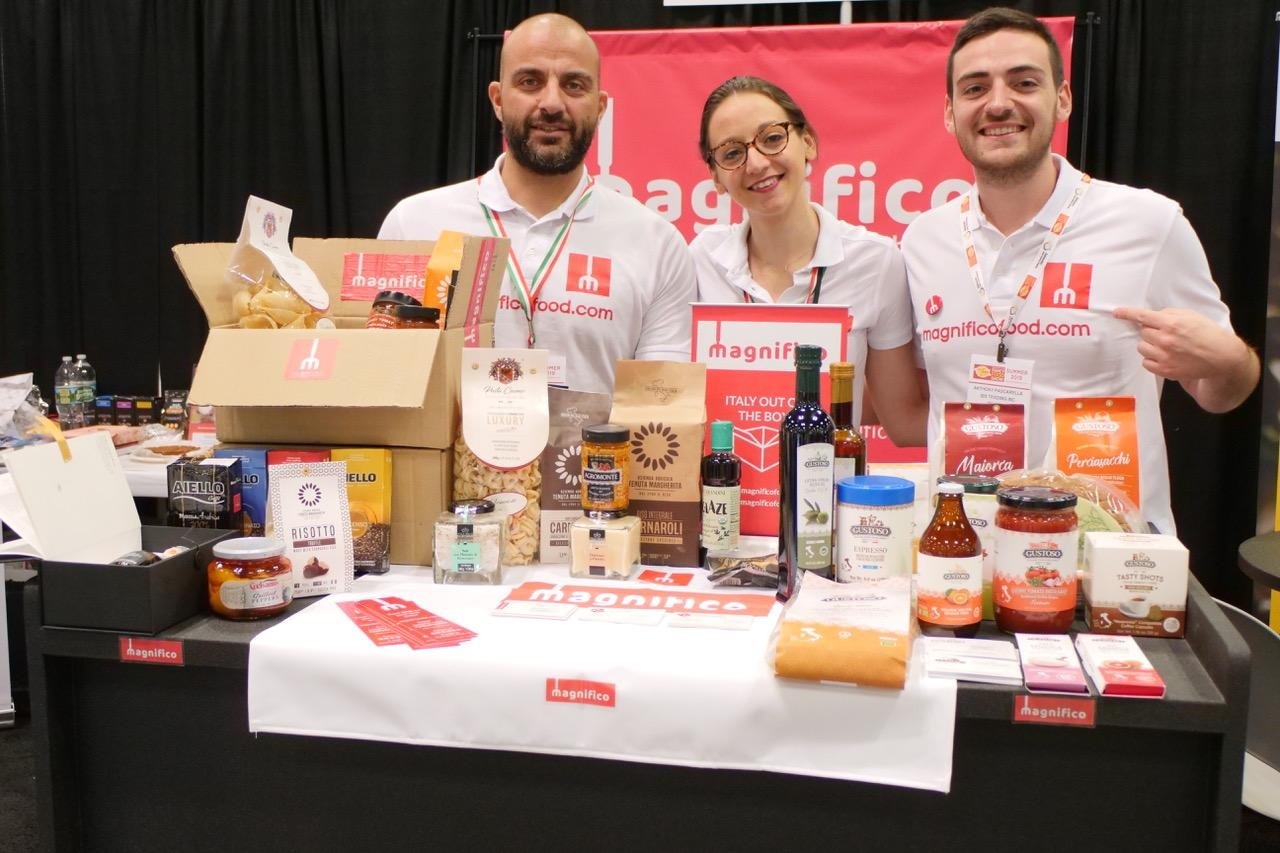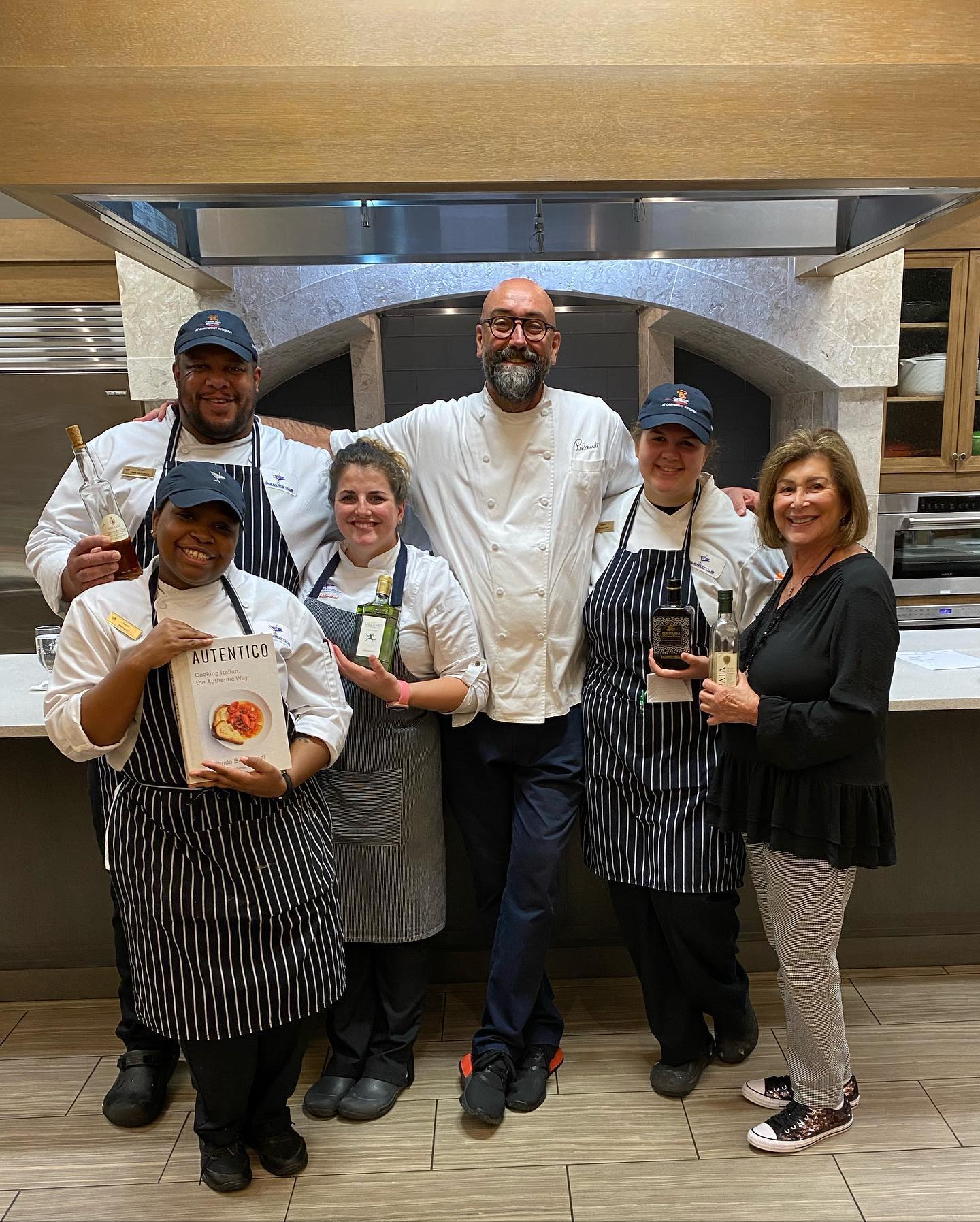The pandemic turned the idea of going out grocery shopping into a horrifying thought. Tiny claustrophobic corridors between the isles became the nightmare where you would inevitably cross somebody else’s path. Video renderings explained how one person’s infectious cough would linger in front of those tomato cans and travel throughout the store.
In March 2020, fear of going out to buy food started spreading and pushed Americans to shift their shopping online. According to a Brick Meets Click survey, online grocery shopping grew to $5.3 billion in April, compared to the $4 billion of March. Demand grew so unexpectedly that it became almost impossible to home-delivery from established online supermarkets like Fresh Direct and Whole Foods.
In a moment of collective fear, Americans started stacking up food in their homes. Whatever could be bought was taken. The sudden market change impacted the canonical online supermarkets and hit Italian online stores that specialized in high-quality products.
“On the 15th of March, our life changed,” said Beatrice Ughi, founder of Gustiamo, an Italian high-quality food importer and online retailer based in the Bronx since 1999. “We have been working with e-commerce for 20 years, but everything revolutionized, and we were not ready.”

Gustiamo made around half of its revenues by selling bulk products to restaurants around the country. But when restaurants closed, the demand dropped dramatically: “from one day to the other, the restaurant’s sales went to zero.” Simultaneously, the online sales spiked, leading to a crisis within Gustiamo, that found itself without inventory and personnel. The whole team turned to prepare packages to be shipped around the country.

“At the beginning it was scary,” said Rolando Beramendi, founder of Manicaretti, a San Francisco high-quality Italian food importer who sells to the trade. “What happened to toilet paper happened to the spaghetti,” he said, referring to the compulsive race to hoard toilet paper. Also, Manicaretti’s loss in restaurant sales was offset by e-commerce sales.
In 1988, Beremendi started importing Italian foods that were treated, at the time, as ethnic delicacies. He started in his garage in San Francisco and helped West Coasters understand what good extra-virgin olive oil, colatura di alici, or farro were. “We complied with the orders, but we felt the preoccupation of Americans,” he said.
“Online orders of $1500 communicated the sadness of our American friends being abandoned by this administration,” the owner of Gustiamo said. Since the beginning of the pandemic, chaos had been reigning in the United States, skyrocketing the country to 2.7 million infected. Many Americans felt abandoned and made sure to have enough food to survive an extended crisis.
The sudden increase in sales showed the flaws of one of the oldest democracies on earth and turned out to be not as favorable for high-quality online retailers as it seems.

Both Ughi and Beramendi have been in the business for decades and have grown their firms organically, which means slowly adapting to change and trying to increase their market share step by step. They hold a market niche where products have to be sourced in Italy, shipped to the US, and distributed. Every step is attentively tailored to the American demand because mistakes in supply can lead to unhappy consumers or boxes full of expired food in a warehouse.
“We had an inventory crisis,” Ughi said, and Beramendi explained that they had to rationalize the orders. They both run into the problem of upsetting and losing customers with websites full of “sold out” labels.
Logistics turned out fine for both, and Italian producers kept on sending their products to the US. The line between Italy and America stayed open and helped both ends of the supply chain.
“Italy has had the luck, compared to other countries, to be producing foods that are the base of today’s American diet: olive oil, spaghetti, tomato sauce, balsamic vinegar,” Beramendi said.
Nevertheless, the fear that import restrictions would be put in place by the Trump administration from one day to another worried both Ughi and Beramendi. Nobody knew what would have happened, and they worried about sudden new import tariffs on their products. To Ughi, every time a new container arrived, it seemed like a miracle.
“We need to keep a connection between the Italian and American economy. Without us, Americans would eat worse. Without Americans, I don’t know what would happen to Italian artisans,” Beramendi said.
Besides disturbing the organic growth of smaller online firms, the pandemic turned out to be an unsuspected marketing tool. Italian restaurants were shut down, so, many people who had never bought from high-quality retailers, learned how to cook pasta made of ancient Sicilian grains.

Alessio Gambino, founder of Magnifico, a new on-line Italian retailer that started selling high-quality Italian food last October said: “We got advantaged, I do not like the term, from the lockdown. Our sales doubled in March and April, and in May they stabilized.” Many new customers tried his products, and Gambino is now planning to double the available products on the site by the end of year.

“Luckily, people that bought our products are eating well,” Beramendi said. “It’s a culinary pandemic!”
“There are few things in life that really matter, and one of them is the quality of the food you put in your body,” Ughi said.
In a time when government decisions can mean the difference between life or death, deciding what to eat can turn into a political act. “Your dollar is a political dollar, not only because you buy good food, but also because it is good for the planet, culture, landscape, and I hope that this will stay,” Ughi, who is a believer in the Slow Food philosophy, said.
Gustiamo, Manicaretti and Magnifico products come with a higher price, but cut down intermediaries that would raise the final price even more.
“With the digital disruption, we allow a fair revenue for the producer, while the American consumers don’t spend too much. Too many intermediaries do not bring any value to the consumer,” Gambino said.
Ughi hoped that people who tried their products during the pandemic understood their value.
“They are produced without shortcuts and with the best ingredients. Food has to cost the right amount of money. If it doesn’t, it’s fake. Maybe this period will lead to a rediscovery of the value and importance of good and quality products,” Ughi said.












